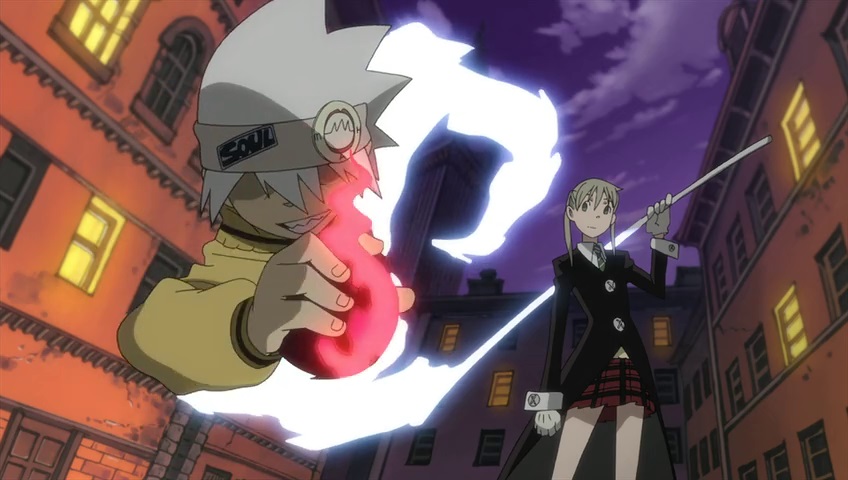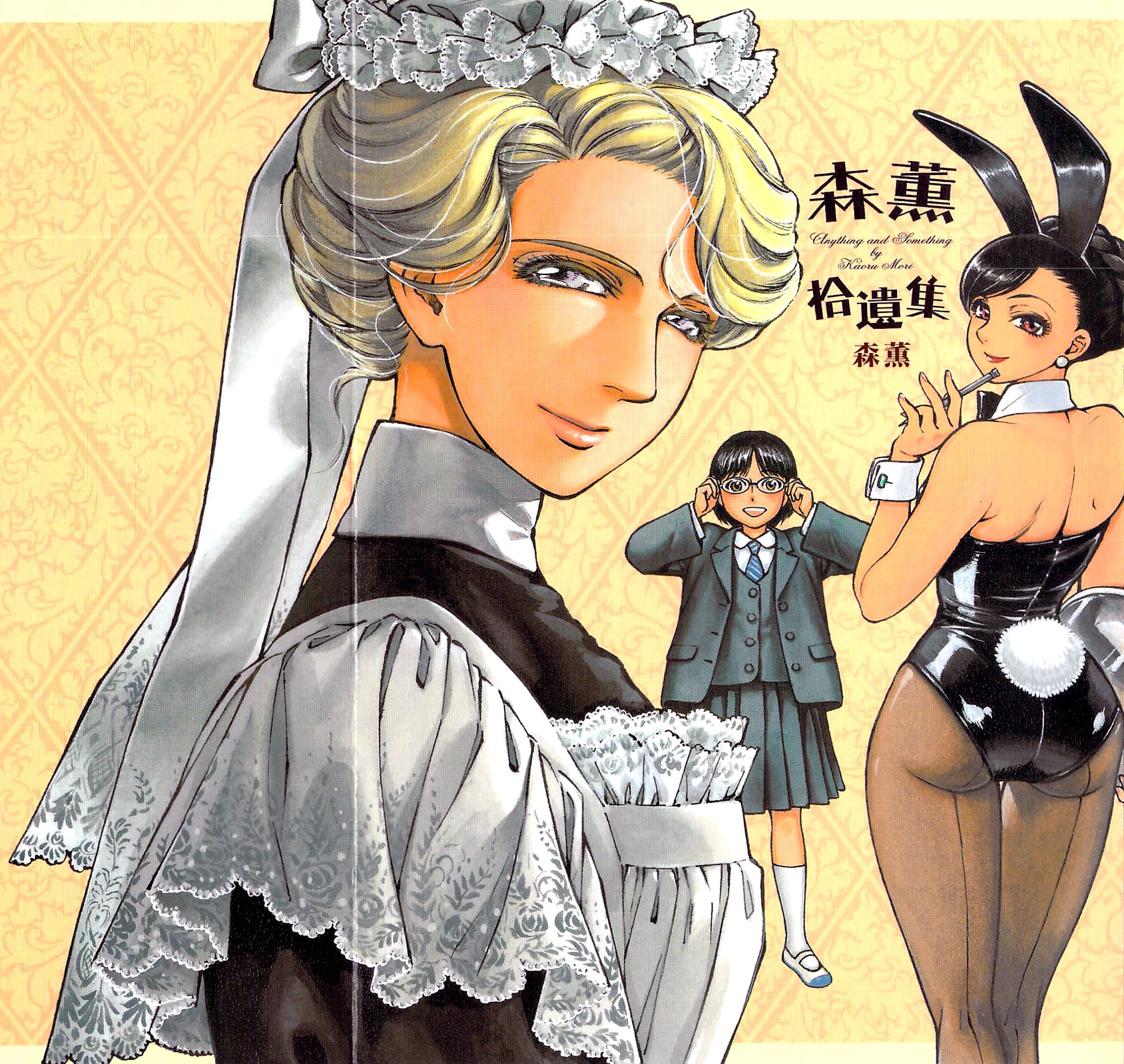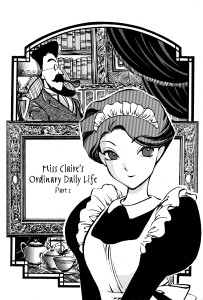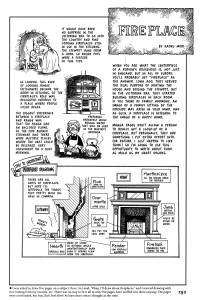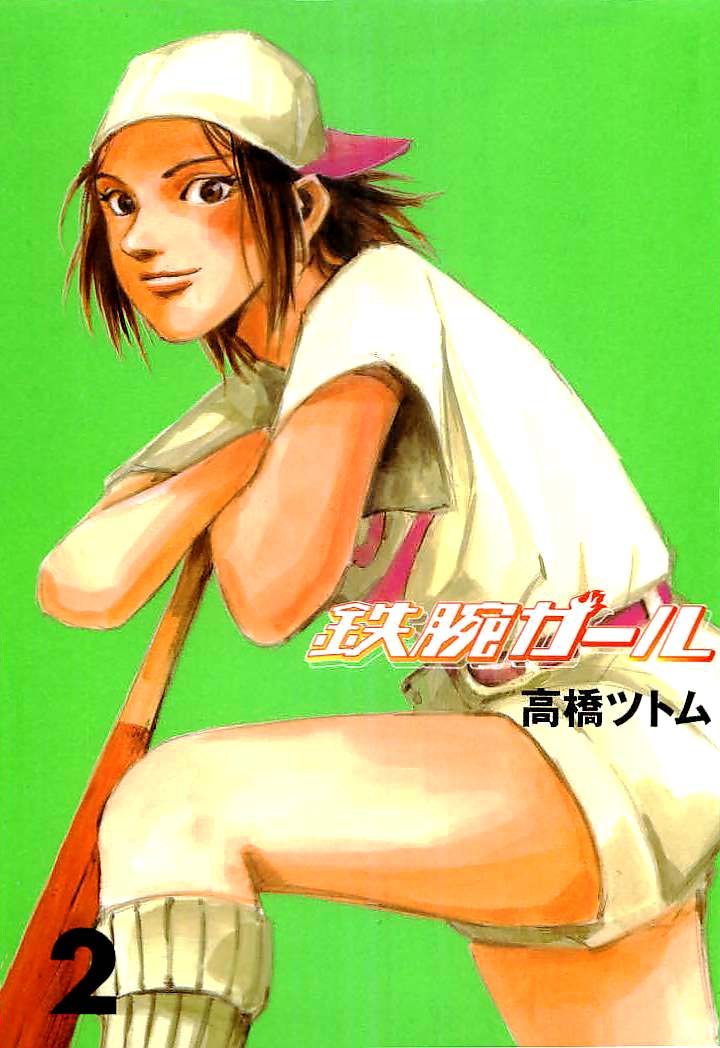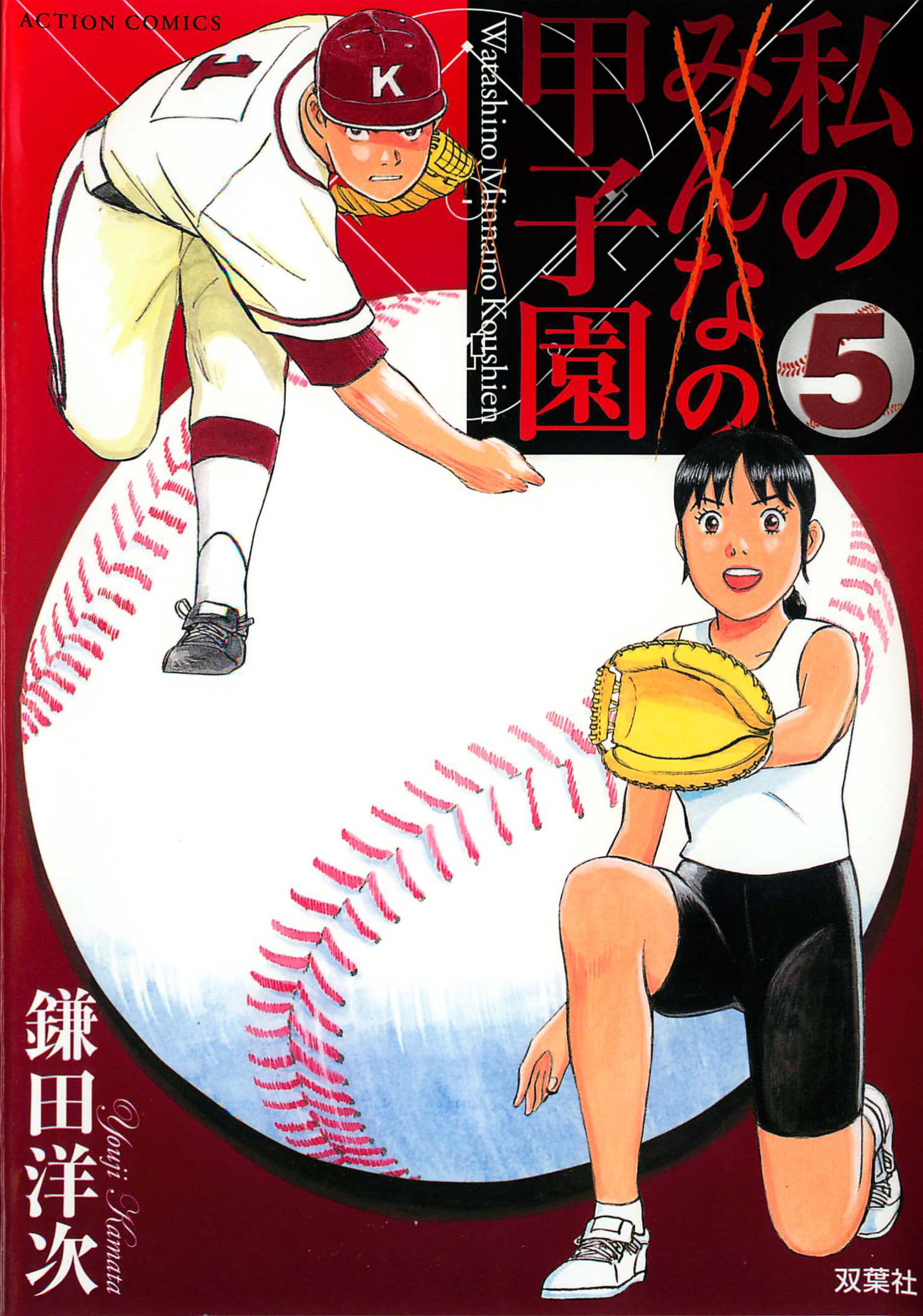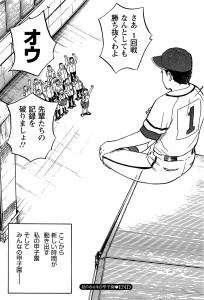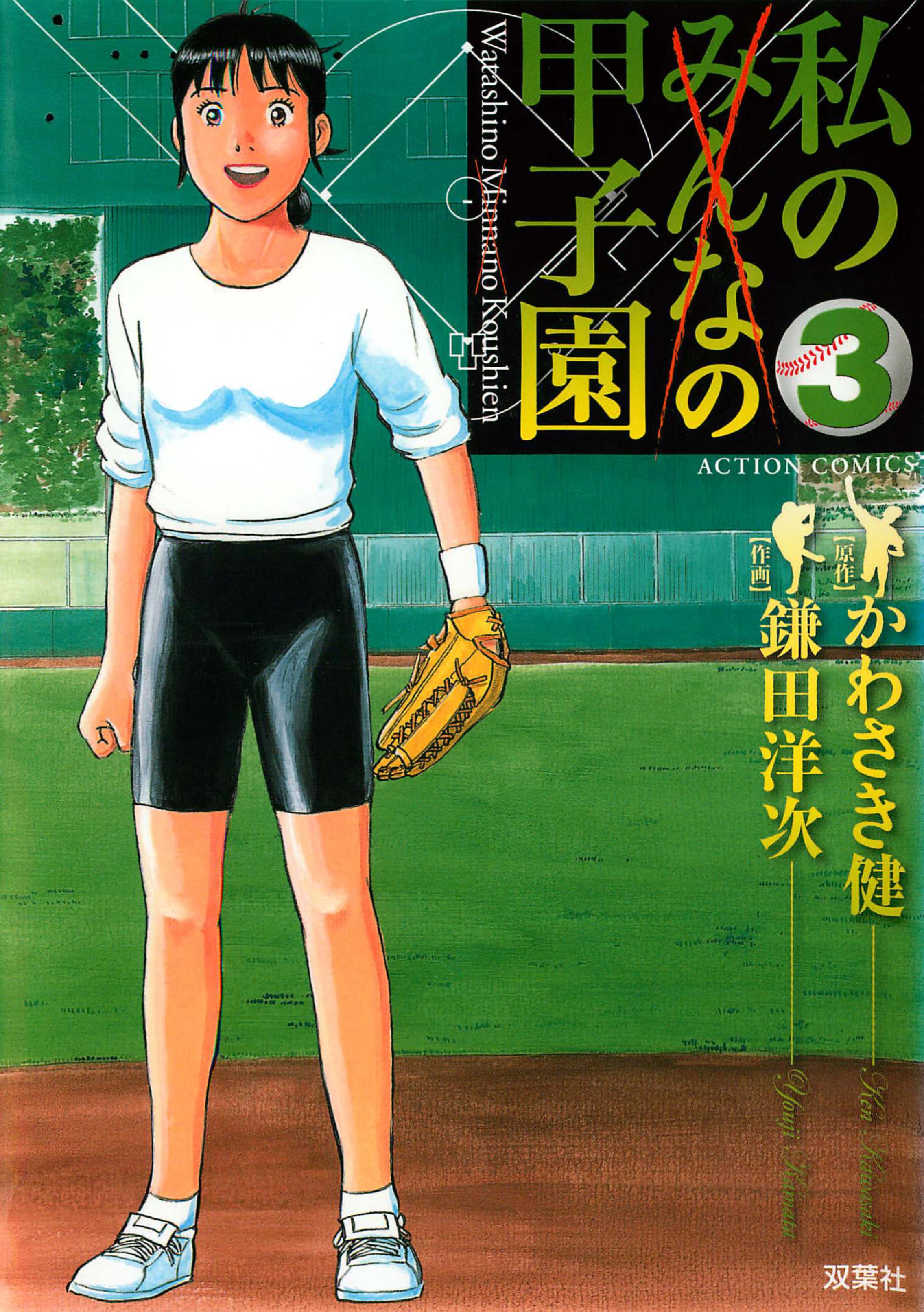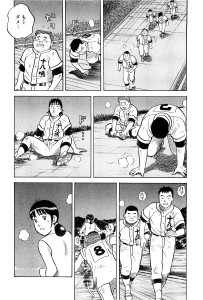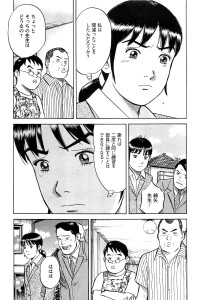Yup, you guessed it. Another baseball manga. I didn’t have much luck with Tetsuwan Girl, though. I made it as far as volume 4-ish, skimmed around a while till volume 6 then dropped it.
Story: A girl named Tome becomes a baseball star (only not really). The manga is set in 1949, with Japan under occupation. And since author Tsutomu Takahashi seems to be an avid right-winger, the whole manga is just an excuse to go “Oh poor Japan, what did we ever do wrong, those mean, mean Americans!” I haven’t read a manga this self-pitying in a while.
Art: Not bad. Nothing remarkable. Very ‘modern seinen’ if you know what I mean.
The sports action: What sports action? Actually the Tokyo Candys team Tome belongs to do play two matches, both of which I skimmed because they weren’t very interesting. In fact they weren’t interesting at all, because they were just vehicles for the author’s “Japan strong! America mean!” agenda.
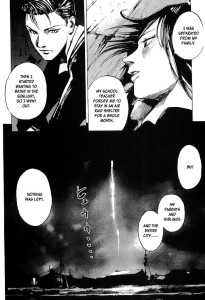 Any other comments: The “repair Japan’s tattered pride through baseball” story could have been good with more compelling characters. Tome is hard to relate to because the author doesn’t delve under her skin. “Boo hoo, my parents died so I want to shine” is all the motivation we’re given, and then she trains hard for a month or two and is suddenly the best pitcher in Japan? How low-level must Japanese female baseball be?
Any other comments: The “repair Japan’s tattered pride through baseball” story could have been good with more compelling characters. Tome is hard to relate to because the author doesn’t delve under her skin. “Boo hoo, my parents died so I want to shine” is all the motivation we’re given, and then she trains hard for a month or two and is suddenly the best pitcher in Japan? How low-level must Japanese female baseball be?
Besides, she gets the majority of her ‘fame’ for actions off the field like appearing naked on a billboard, attacking reporters and just being ‘wild’ in general. Her baseball skill is just by-the-by. Her character is shaky as well, sometimes tough, sometimes fragile, trash-talking an opponent then crying because she lost. It would be one thing if she was five years old, but she’s 20-something.
Then again if she was five that would be a blessing, because then even a Japanese author wouldn’t make her do nonsensical things like hop into bed with a guy once, suddenly decide he’s her fiance when he’s never proposed, then try to abandon her career to go see him. Whatever happened to him, anyway?
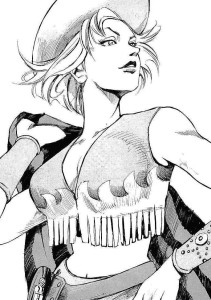 In most baseball manga there are other characters you can latch onto if the main one disappoints, but this isn’t one of those. Other major characters are just as poorly-depicted as Tome. Either that or they appear, get built up briefly and then completely disappear for long stretches of time, like the catcher Kurosawa or that other girl Tome started out with or the Mr. Royal guy who suddenly shows up all “Revenge!” after being out of the spotlight for goodness knows how long. Eventually you just stop paying attention to everyone except Tome.
In most baseball manga there are other characters you can latch onto if the main one disappoints, but this isn’t one of those. Other major characters are just as poorly-depicted as Tome. Either that or they appear, get built up briefly and then completely disappear for long stretches of time, like the catcher Kurosawa or that other girl Tome started out with or the Mr. Royal guy who suddenly shows up all “Revenge!” after being out of the spotlight for goodness knows how long. Eventually you just stop paying attention to everyone except Tome.
And you can’t even root for the Candys to beat their opponent, because as I’ve said their opponents are almost always Americans and they’re almost always caricatures: blond-haired, blue-eyed, good-looking, arrogant. See Exhibit 1 on the right. The only prominent black character is drawn fat, ugly and frog-like. There’s your representation for you. On the other hand the black ‘Mama’ is good while the blondes are brash, boastful and racist through and through, just ripe to be taught a good lesson about the toughness and resilience of Japan, oh how great almighty Nippon is! It’s that kind of manga.
tl;dr Yet another manga where girls playing baseball is treated as a cheap novelty. You might enjoy if it you like the main character or enjoy America-bashing and Japan-praising. Otherwise Tetsuwan Girl is a failure as a serious manga and brings baseball into disrepute by dragging in unnecessary jingoism and dramatic hijinks while downplaying the actual game. Did not enjoy/10
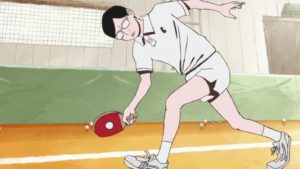 Ping Pong: The main character’s voice and attitude turned me off completely. I know he’s supposed to sound bored and lifeless, and I’m sure hundred of voice actors were auditioned and several takes were made in order to get him to sound like a dead fish, but he just rubs me the wrong way 100%. I’ve heard good things about Ping Pong so I might read the manga where I don’t have to deal with any annoying voices and the super slow pacing. The anime, though, is not for me.
Ping Pong: The main character’s voice and attitude turned me off completely. I know he’s supposed to sound bored and lifeless, and I’m sure hundred of voice actors were auditioned and several takes were made in order to get him to sound like a dead fish, but he just rubs me the wrong way 100%. I’ve heard good things about Ping Pong so I might read the manga where I don’t have to deal with any annoying voices and the super slow pacing. The anime, though, is not for me.